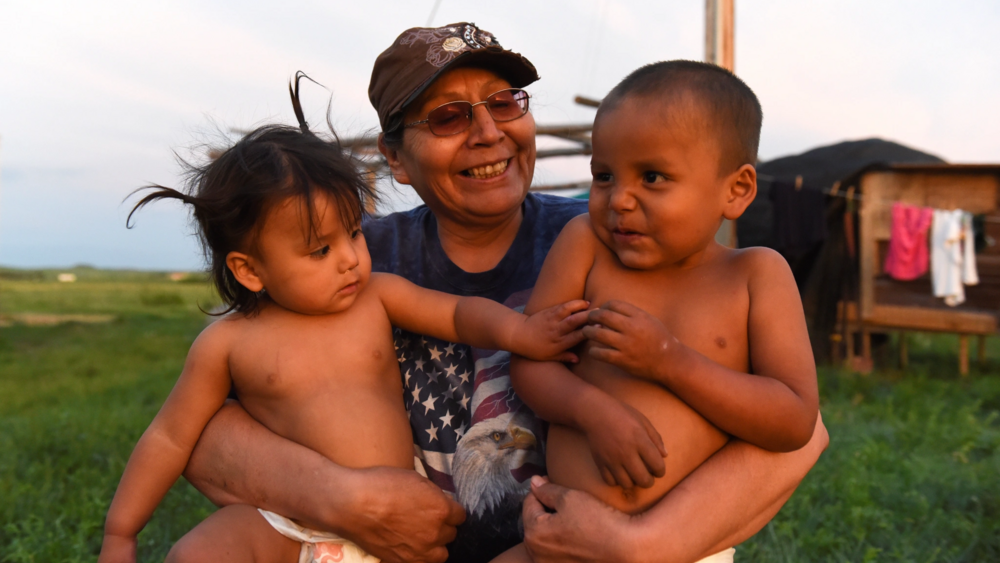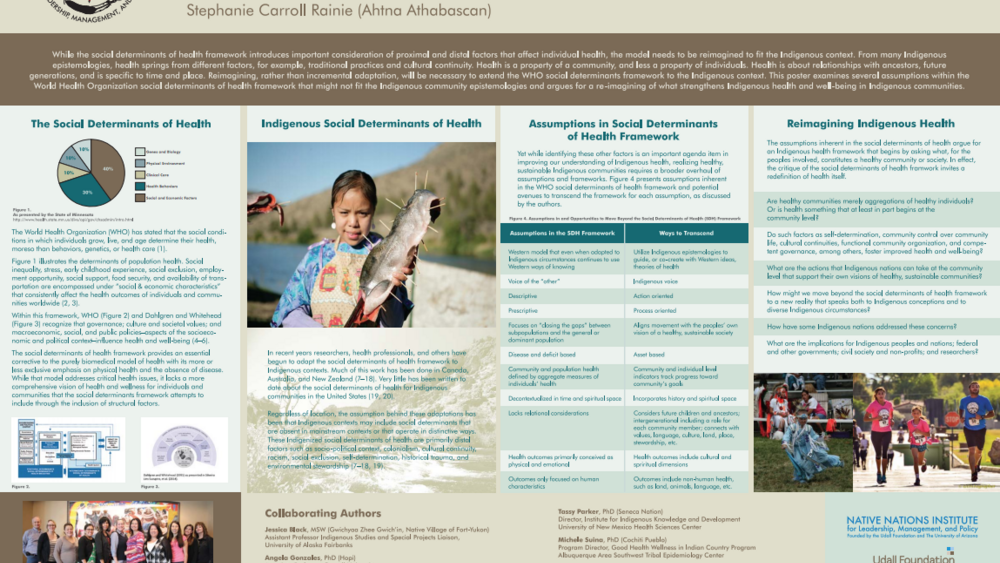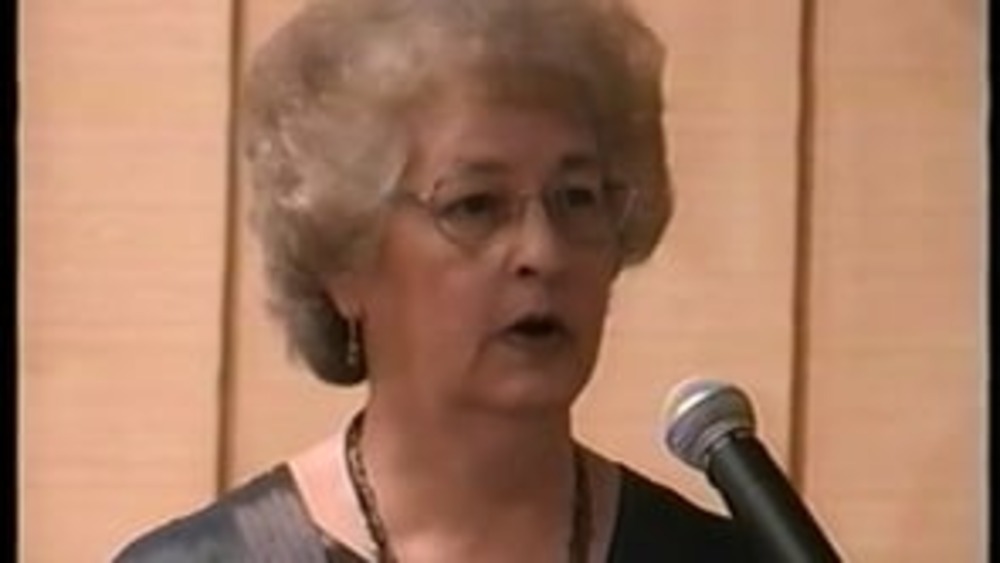Julia "Bunny" Jaakola reports back to her fellow Honoring Nations symposium attendees about some of the keys to effective governance that the education and social services breakout session participants identified.
Additional Information
Jaakola, Julia "Bunny." "Education and Social Services." Honoring Nations symposium. Harvard Project on American Indian Economic Development, John F. Kennedy School of Government, Harvard University. Sante Fe, New Mexico. February 7, 2002. Presentation.
Transcript
Julia "Bunny" Jaakola:
"I'm from the Fond du Lac Band of Minnesota Chippewa and I am the Coordinator of the Social Service Department there. So in our social service group one of the similarities that came out loud and clear was that within the tribal structure, social services isn't always high priority, but with that we recognized a lot of other very pointed advantages to being involved with the social service part of the whole tribal business. When we looked at the structure, the...oh, in fact I wanted to say about our group, we were a small group but we had one person who claimed connection to the Pope and we heard a little bit about a party in Boston, but I don't remember the details. So within a structure, we learned that we really require user-friendly information systems. It's pretty clear that with technology as available as it is we really need to train our people and get them to the point of feeling comfortable with it. Structures that relieve tribal council of the burden of the day-to-day management, and one way that we do that is to be sure that the key people have the ear of the tribal council and the ability then to keep them informed. And the agreement between tribal council priorities and program goals, that's kind of what I meant or what we meant when we said about the place and prioritization that goes on. And we really have to work to keep our tribal council involved and aware of the needs in the social service area. Staff continuity is really a plus, an advantage, something that everywhere, not just in social services, but if you have that continuity in your area of business you're going to have a more solid business and business that's going to continue long after you're gone and it will strive or live through those changes of governmental officials, too. Lessons learned in the area of process: staff-directed, long-term planning. We talked about the community-based needs assessment and keeping reports going of day-to-day work that gets done; the development and adoption by the tribal council of the manuals and policies that describe the job description and therefore lay the expectation out for the employees who come to work there. The regular, for example, quarterly reporting procedures, we found that we all have to report to funding sources -- especially if we're on granting process -- but we have to do better at using that data, finding ways to take advantage of the fact that we do have the data collected and it's not just sitting around. Then we talked about the long-term planning. At Fond du Lac, we have a tribal specific health plan that is developed by the staff, by the advisory council that's made up of community people and the officials. And as changes are made in the tribal council, that policy...that plan is already in place so there's no, I was going to say, there's no way that changes are going to be made, but for the most part that plan is there and the people are still there who made that plan. So the plans are carried out and it doesn't matter that people change positions."



